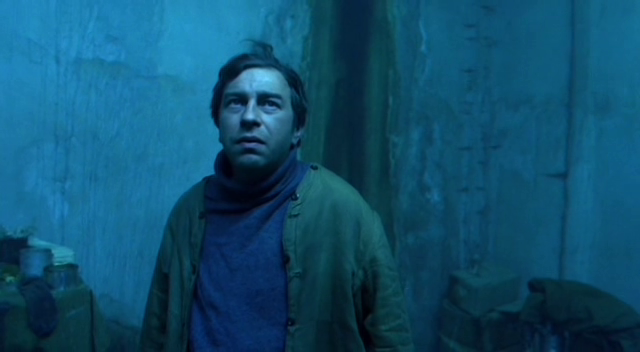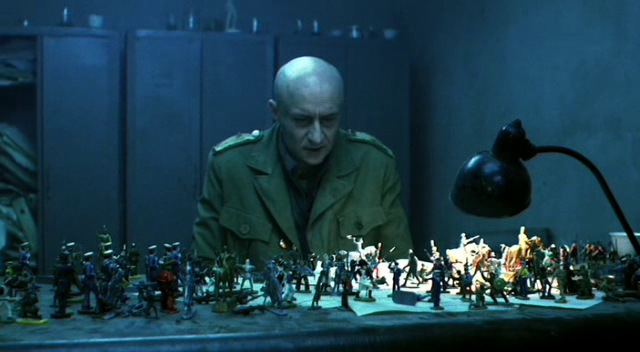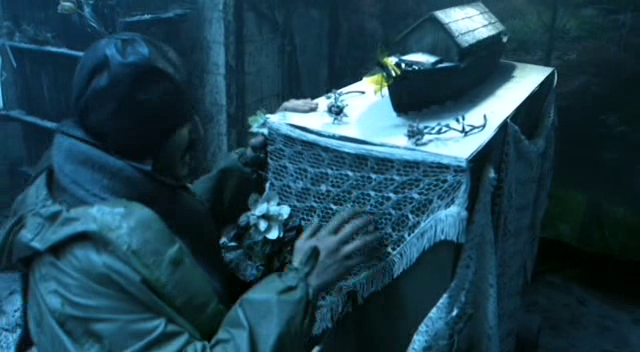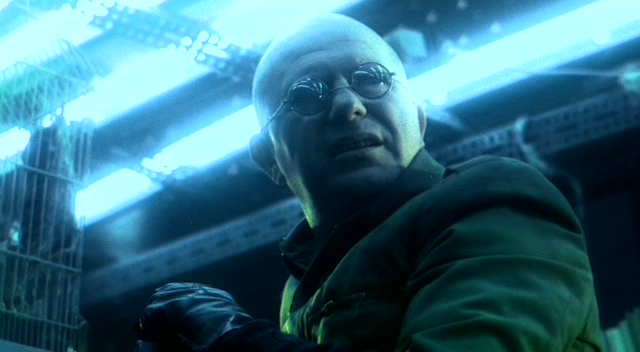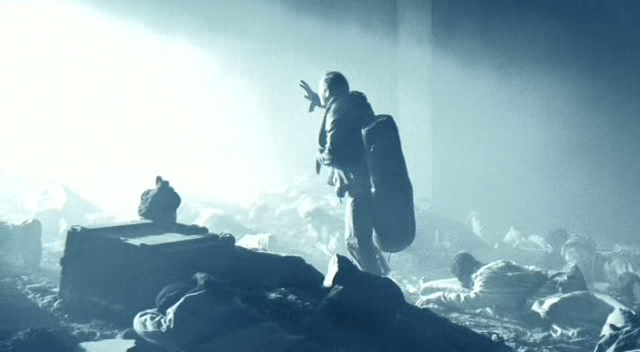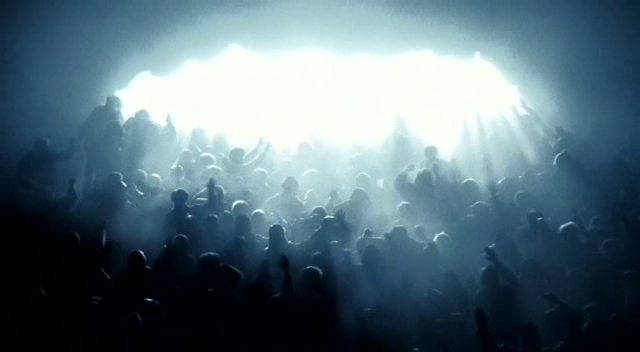
Recent: Repointing Ansel Adams Ubik Fashion Nautilus Shard Betty Boop Dance Reading List 2024 Ready for 2025 Shuttle Computer Abstract Arcs Election Night RCS Photos Space Stamps Fireworks Long Black Curly Eyes Nixie Tubes Memory Scavengers Nightshade Cobras Magical Feedback of Oz |
Watching
Piotr Szulkin's
nuclear holocaust film
O-Bi, O-Ba - The End of Civilization
I was strongly reminded of
Stanislaw Lem's
Memoirs Found in a Bathtub,
his post-apocalyptic retelling of
The Castle.
On a further reread, I found many similarities.
Both works present a survivalist population living in an underground
bunker after some sort of catastrophe has destroyed civilization and made
life above-ground untenable. In Memoirs, it is a strange substance
from space, like an abiotic bacteria, that reduces all paper to dust almost
overnight, and the central government and military leadership of America
retreat to their carved-out-mountain bunker. A few generations later,
the survivors have developed a paranoid hysteria about protecting
The Building from the enemy and his spies, who they assume
must be everywhere.
In O-Bi, O-Ba,
it was a nuclear war, that occured one year before the time the story
takes place, and two thousand people managed to get to this
particular underground shelter.
Both bunkers are in the control of paranoid miliary commanders who
will invent conflict as they find it necessary. In Memoirs:
And in O-Bi, O-Ba, the main character's commander:
But more importantly, life in both bunkers is completely dedicated to a
mythological entity. In Memoirs, there is talk of vast
inter-galactic intrigue (completely non-existant) and a remote
Anti-Building, the fictional enemy's base. In O-Bi,
O-Ba, there is an enemy, the Booroos, who most likely does not
exist either. Sometimes this comes through as practical scheming - in
Memoirs the main character is searching for the plans that
describe his mission and it is finally explained to him that there are
millions of contradictory plans, and no one knows which one is "real" -
if that can even be said of any of them. In O-Bi, O-Ba, the
leaders spread a rumour of an Ark that will be coming to rescue
them all and take them somewhere safe, then officially deny it and try
to repress it. The main character admits that in order to get the
people to initially flee to the bunker they started the rumour:
While simultaneously their PA system in the public areas constantly
repeats the message:
But most of the time the deception regarding these myths
goes well beyond shrewd manipulation,
and into self-delusion territory. In Memoirs, the main character meets
a fellow spy who has become cynical of their mission, and finds that he
doesn't even care if the enemy exists any more, he just wants something
to do:
"Who says I'm not? Who says I am? Give me something spiable,
why don't you!"
While in O-Bi, O-Ba, a character is caught planting taunting flyers allegedly
from the enemy Booroos. He explains that he does it to give the target
of the flyers meaning in his life:
And among the true believers in both bunkers, their mission eventually
becomes a religious devotion. In Memoirs, we are told:
And in O-Bi, O-Ba, a character who thinks he has found a special way of
surviving long enough to greet the Ark has also built an altar
to it, and has his own prayer:
Even the top commander in the bunker, who made the original decision
to create the Ark myth, ends up a believer:
Aside from the general environment and myths, there is an interesting
parallel between the two works that stands out. In both there is a
scene where the main character winds up in the bunker's library, which
is an otherwise rare event in post-apocalyptic stories. In
Memoirs, Custodian Ninth Degree Antheus Kappril gives us a tour
of the Building's archives, which contains only books about spying and
codes, interrogation and torture. In O-Bi, O-Ba, the librarian
explains (in hushed tones, because "The Booroos are
eavesdropping.") that they only have books on the Booroos, and all
other books have been taken away - ground up and used as food
additive.
Both stories end with the main character approaching a passage
to the outside world filled with blinding light. In Memoirs,
he turns away from it and retreats back into the building, while
in O-Bi, O-Ba he walks out into the lethal surface world.
|
